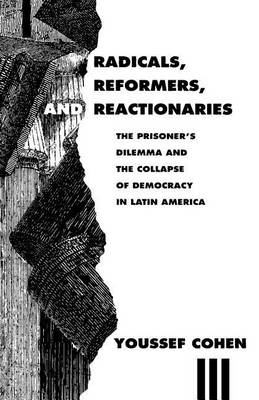Latin American democracies of the 1960s and 1970s, most theories hold, collapsed because they had become incompatible with the structural requirements of capitalist development. In this application of game theory to political phenomena, Cohen argues that structural conditions in Latin American countries did not necessarily preclude the implementation of social and economic reforms within a democratic framework. Focusing on the experiences of Chile and Brazil, Cohen argues that what thwarted democratic reforms in Latin America was a classic case of "prisoner's dilemma". Moderates on the Left and the Right knew the benefits of coming to a mutual agreement of socioeconomic reforms. Yet each feared that, if it co-operated, the other side could gain by colluding with the radicals. Unwilling to take this risk, moderate groups in both countries splintered and joined the extremists. The resulting disorder opened the way for military control. Cohen further argues that, in general, structural explanations of political phenomena are inherantly flawed; they incorrectly assume that beliefs, preferences and actions are caused by social, political and economic structures.
One cannot explain political outcomes, Cohen argues, without treating beliefs and preferences as partly independent from structures, and as having a causal force in their own right.
- ISBN10 0226112721
- ISBN13 9780226112725
- Publish Date 1 November 1994 (first published 17 October 1994)
- Publish Status Active
- Publish Country US
- Imprint University of Chicago Press
- Edition 2nd ed.
- Format Paperback (UK Trade)
- Pages 196
- Language English
- URL http://wiley.com/remtitle.cgi?isbn=9780226112725
